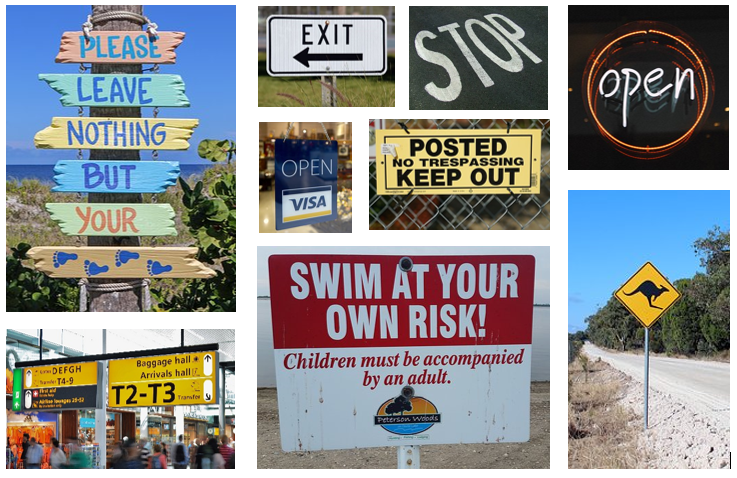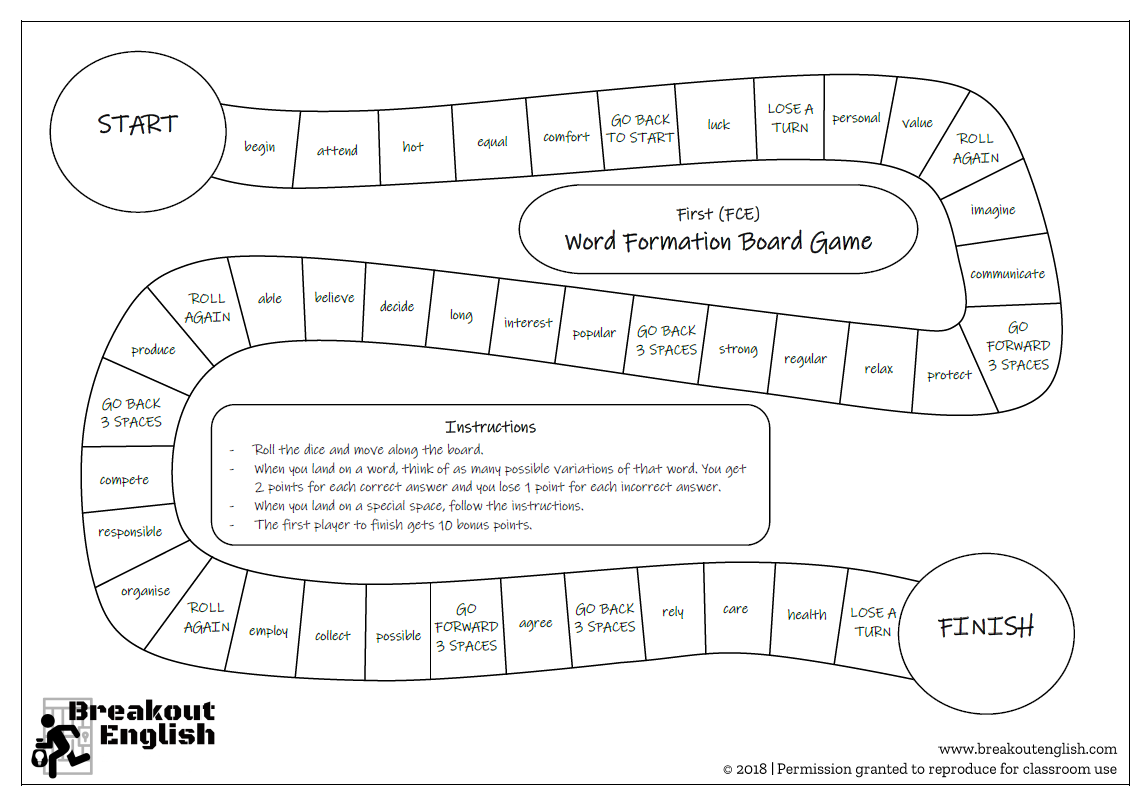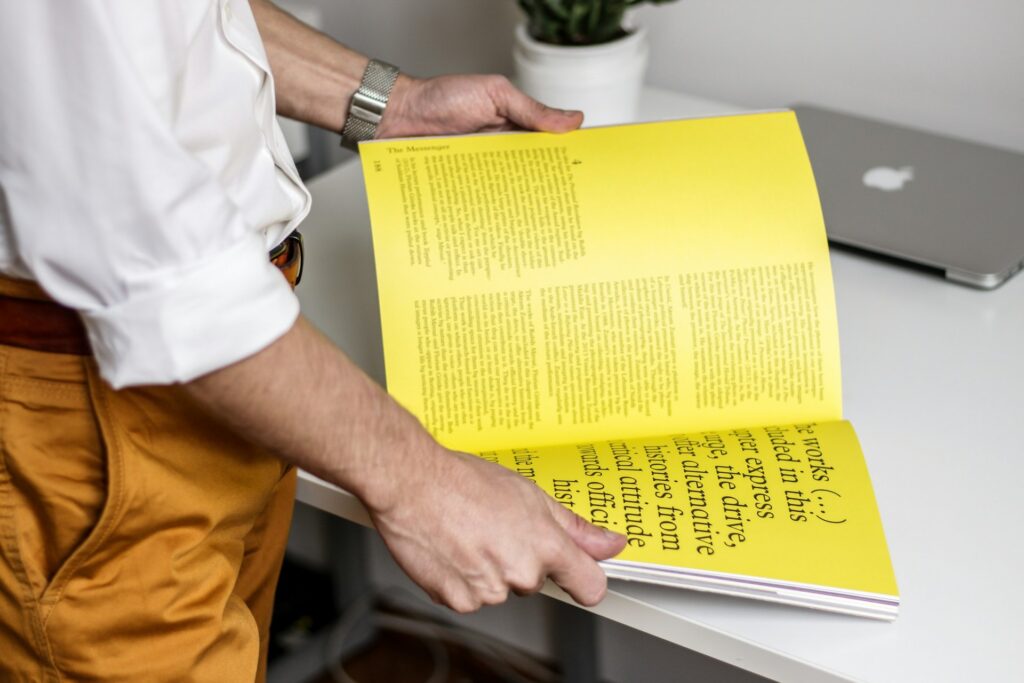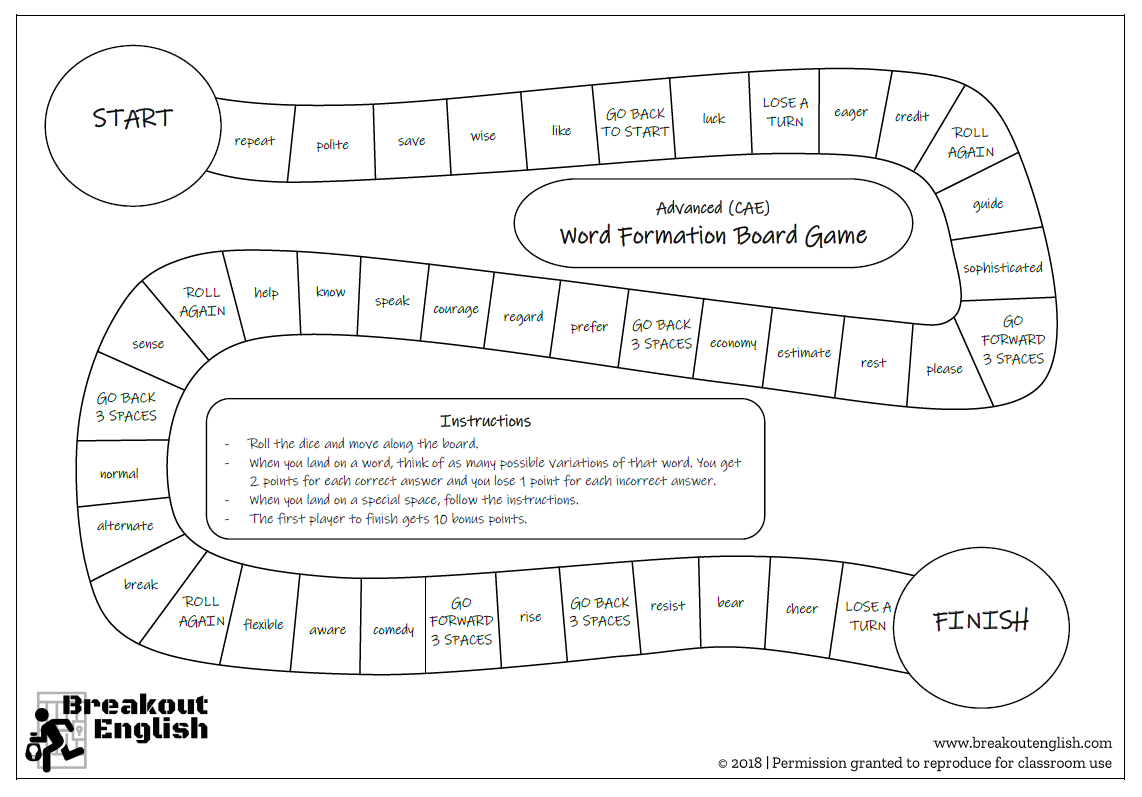Writing an Article – Rhetorical Questions
Writing rhetorical questions is a literary device that professional writers love to hate, but if you’re writing an article for...
Word Formation Games
Word formation is probably the easiest part of Cambridge exams to gamify (from the root word GAME of course). Use...
Word Formation Exercises – Conversation Questions
Word formation exercises can be found all over the internet, but they are often dry and rather uninspiring to use...
Wishes and Regrets
What better way is there to cheer up a class and spark some lively conversation than to ask your students...
Why should advanced learners use Radio 4 in Four?
Radio 4 in Four is a fantastic resource for language learners, especially for those who are taking an exam, because...
What is the Trinity ISE Exam? – Get to know the exam
What is the Trinity ISE exam? Many of us have years of experience teaching exams. You might have spent decades...
Uses of punctuation marks – Writing well-structured sentences
I have long suspected that students may not have ever learnt the correct uses of punctuation marks in their 1st...
Todo lo que necesitas saber sobre el nuevo examen de Inglés de la PAU 2025 en Andalucía
He acompañado ya a varios grupos en su camino hacia la Selectividad de Inglés, y cada año trae sus propios...
The Entertaining Exam Enigma – Fun activities for exam classes
Teaching exam preparation classes is a requirement for many teachers nowadays, but dull, dry and depressing don’t have to describe...
The best First Certificate books
Passing a B2 level Cambridge exam is a big deal and only the best First Certificate books will get you...
The best books for Cambridge Advanced preparation
If you are taking the Cambridge Advanced exam soon or you are preparing a class of students to take the...
The 120 most useful phrasal verbs list
Phrasal verbs are one of the love to hate them areas of the English language, but love them or hate...
Reflections on teaching online
If you’ve been a English teacher during 2020, you’ve almost certainly had your profession turned upside down and found yourself...
Real and unreal conditional sentences
Conditional sentences can be a challenging aspect of English grammar for language learners, and this is especially true when it...
Preliminary PET Writing Part 1 – Improve a letter
For Cambridge B1 candidates as of January 2020, Preliminary PET Writing Part 1 is always a letter. The candidate is...
Preliminary (PET) Writing Sample Tests
Writing can be a scary thing for B1 learners, but with some training the Preliminary (PET) writing doesn’t have to...
Preliminary (PET) Writing Part 2 – Emoji Story 😀
Like it or not, emoji are part of our modern lives 😉. Kids and grandparents 👴👵 alike love 💖 them...
Preliminary (PET) Transformations – Passive
The passive is one of Cambridge’s favourite grammar points to test in Writing Part 1 of the PET exam. I’d...
Preliminary (PET) Transformations – Conditionals
At B1 level for the Cambridge PET exam, more complex grammar starts to become a factor. Conditionals are one of...
Preliminary (PET) Transformations – Comparatives and Superlatives
The Preliminary (PET) exam doesn’t have a Use of English section, but it does still have key-word transformations. They appear...
Preliminary (PET) Speaking Parts 3 & 4
In the PET speaking exam there are 4 parts. Obviously it is important to practise all of the parts, but...
Preliminary (PET) Speaking – Sample Tests
Speaking at B1 level involves candidates showing that they are able to communicate effectively in everyday situations. You won’t be...
Preliminary (PET) Reading Part 6 – Open Cloze
Preliminary (PET) Reading Part 6 is primarily a grammar test that focusses on B1 level structures, fixed phrases or even...
Preliminary (PET) Reading Part 4 – Rudolph the Red-Nosed Reindeer
With the Christmas season and the New Year upon us, it’s time to start thinking about what Christmas activities we...
Pictures to describe for Preliminary (PET) Speaking Part 2
Describing a picture is a common element of almost all Cambridge main suite English exams, but in order to practise...
Online Teaching Games & Activities
Online teaching has seen a massive growth and with that comes a whole new set of challenges, including how to...
Nouns in Formal English
At C1 Advanced level, being able to write formally starts to increase in importance. Not only do successful candidates at...
Make and Do – Collocations
Make and do are notoriously difficult for learners of English to distinguish. There is a subtle difference in meaning, but...
Linking words – How to improve your writing
Linking words, also known as linkers, cohesive devices, connectors and transition words, are a vital part of writing. Often when...
Liar, liar! – present perfect / past simple game
Have you ever taught the present perfect and past simple to a B1 group? I definitely have! This is one...
Language learning plateaus and how to deal with them
Most language learners or teachers would agree that the path towards fluency is not always straightforward. There are ups, downs...
Just a Minute Topics
Just a Minute is a BBC Radio 4 panel show where panellists are asked to talk for one minute, without...
ISE II Collaborative Task Activity (Pair Work)
The ISE II collaborative task (and ISE III) is a curious one. it seems to surprise teachers as much as...
ISE I Conversation Task Pair Work
ISE I conversation questions are an important part of the ISE I speaking exam. The exam is only 6 minutes...
ISE I – Health and Fitness – The Mediterranean Diet
I love talking about food in my classes. I find that students do too. After all, who doesn’t like thinking...
Informal vs formal letters and emails
Letters and emails are probably the most practical writing type in the exam. Personally, I write emails almost every day...
IELTS Academic Writing Part 1 – Describing change and surveys
Writing Part 1 of IELTS: Academic features writing a 150 word description of a graph or a process. To succeed...
How to write an email – PET Writing Part 1
Are you gearing up for the Cambridge B1 Preliminary (PET) writing part 1 and feeling a bit overwhelmed by writing...
How to write a report
Are you planning to take an English exam like Cambridge B2 First, C1 Advanced or the Trinity ISE exams and...
How to write a film review
Writing a review is an option in many different English language exams, and films are such an obvious choice for...
How to teach Cambridge exam classes
Cambridge English exams are taken by over 5.5 million candidates per year in 130 different countries. Since introducing the first...
How to do the Trinity ISE II topic task
The Trinity ISE II topic task is a speaking task and one which requires a certain amount of preparation beforehand...
How to do Preliminary (PET) Reading Part 3 – Identifying Distractors
Preliminary (PET) Reading Part 3 is a multiple-choice task that tests your ability to understand details, opinions, and implied meanings...
How to do Preliminary (PET) Reading Part 2
Preliminary (PET) Reading Part 2 is a matching task. You are given 5 people who have to be matched to...
How to do PET Reading Part 1 – Signs and Modals of Obligation
Reading Part 1 of the PET exam consists of 5 questions. The candidate has to read the information on short...
How to do IELTS True, False, Not Given
The IELTS Reading section tests comprehension and analytical skills, especially in the IELTS True, False, Not Given questions, a key...
How to do IELTS Speaking Part 2
IELTS Speaking Part 2 is a topic based task called the individual long turn. You receive a topic card with...
How to do First (FCE) Use of English Part 2 “Open Cloze”
The Use of English paper in the Cambridge First (FCE) exam is a challenge. It’s a challenge for students, but...
How to do First (FCE) Speaking Part 2 – Useful Phrases
FCE Speaking Part 2 is also called the “long turn”. In fact, it’s only a minute long, but for B2...
How to do First (FCE) Reading Part 6 – Gapped text
The gapped text task from Cambridge First (FCE) Reading part 6 can be tricky. I’ve always found students can swing...
How to do C1 Advanced CAE Reading Part 6 – Cross-text multiple matching
When Cambridge updated the CAE exam in 2015, they included a new task type called cross-text multiple matching, which became...
How to do Advanced (CAE) Reading Part 7 – Gapped Text
Advanced (CAE) Reading Part 7 is unquestionably one of the most time-consuming and difficult parts of the Reading paper. Even...
Giving Advice – Call a Psychiatrist
Giving advice is such a key area of functional language. It’s useful in real life and it’s useful for official...
Gerunds and Infinitives List
I’m a big fan of lists. Shopping lists, to do lists, meal plan lists, hopes and dreams lists, and even...
Gerunds and Infinitives – ISE II Conversation Questions
Gerunds and infinitives are one of those language points that I have a love/hate relationship with. I love them because...
Fun writing activity: The consequences game
Are you struggling to make essay writing more engaging for B2 and C1 exam students with fun writing activities? Often...
First day of exam class – Get to know the exam (Cambridge)
The first day of class can be tough to plan for, whether its an exam class or not. There’s a...
First day get to know you questions
On the first day of any new class you need to get to know your students and they need to...
First (FCE) Word Formation Board Game
First (FCE) word formation is one of those parts of the exam that needs constant practice. Sometimes that means repeating...
First (FCE) Speaking Part 3 Useful Phrases
In Cambridge First (FCE) Speaking Part 3, useful phrases can be anything that helps you keep the communication going. This...
First (FCE) Speaking Part 3 Examples
If you are looking for some B2 First (FCE) Speaking Part 3 example pictures, you’ve come to the right place...
First (FCE) Speaking Part 2 Pictures
You need to describe pictures at almost every level of Cambridge exams, but not just any pictures. It’s important to...
First (FCE) Speaking – Sample Tests
In the Cambridge First Certificate Speaking test, there are 4 parts. Each part offers its own set of difficulties and...
First (FCE) Song – Shallow – Lady Gaga, Bradley Cooper
If you haven’t seen the film A Star Is Born yet, you’re missing out on a very enjoyable couple of...
First (FCE) Song – Fast Car – Tracy Chapman
Whenever I look for a song to do with a class, I look for something that has a story behind...
First (FCE) Essay Questions
The essay task at Cambridge B2 First (FCE) level might be one of the first times learners encounter a truly...
First (FCE) B2 Key Word Transformations – Reporting Verbs Exercise
Reporting verbs is a challenging grammar point at B2 level, but doing plenty of reporting verbs exercises can help. This...
First (FCE) B2 Key Word Transformations – Relative Clauses
When mastering the art of completing B2 First (FCE) transformations, relative clauses are essential. These clauses are not just a...
First (FCE) B2 Key Word Transformations – Phrasal Verbs
Phrasal verbs are a huge challenge for English language learners, and for that reason, so are key word transformations with...
First (FCE) B2 Key Word Transformations – Conditionals
By B2, learners taking an exam should be comfortable using conditionals, which is why we’ve designed 10 First (FCE) conditionals...
First (FCE) B2 Key Word Transformations – Comparatives and Superlatives Exercises
Comparatives and superlatives exercises are common in English courses, but can be tricky, yet they play a crucial role in...
First (FCE) B2 Essay Structure – Essay Skeletons
There have been many occasions where my students have no time to learn the correct B2 essay structure for a...
Expressing Preferences – Would you rather…
Expressing preferences is one of those functional areas that will come in useful across so many parts of any exam...
Everything you need to know about the new 2025 PAU English exam in Andalusia
I’ve guided several groups through Selectividad English, and each year brings fresh challenges and surprises. This year, the powers that...
Error correction in the ELT classroom
In English language teaching, error correction is something which is expected of teachers, so what error correction techniques are there...
Describing a Picture – Preliminary (PET) Speaking Part 2 Plan
Describing a picture is an element across all Cambridge exams because it’s something we do so much in everyday life...
Dependent prepositions exercises – Use of English part 2
Dependent prepositions exercises are a pain in the neck for many who are preparing for a Cambridge exam. Prepositions pop...
Dead Famous – Past Simple Game
Past simple is a grammar point which you start to learn early on, but can take some time to use...
Christmas Speaking Activities
Want to make sure your Christmas speaking activities have value for your students? By using an exam style activity, you...
Christmas Songs Listening
Are you looking for something to do with your classes before the Christmas break? Whether it’s an exam class or...
Christmas Find Someone Who – Open cloze
It’s never a bad idea to do a Christmas Find Someone Who activity just before the break. You’ve often got...
Cambridge Speaking Part 1 – Chat Cards
Speaking Part 1 in Preliminary (PET), First (FCE) and Advanced (CAE) are all quite similar and can be practised with...
Cambridge Exam Changes 2020 – Updates for Preliminary (PET) and Key (KET)
Cambridge Preliminary (PET) and Key (KET) are getting reasonably major overhauls in 2020. The changes to Cambridge exams in 2020...
Cambridge English Scale – Cambridge Score
Have you ever wondered how what the Cambridge English Scale is or how your score on a Cambridge exam converts...
Cambridge C1 Advanced Speaking – The Complete Guide
If you’re aiming for success in the Cambridge C1 Advanced Speaking exam, you’ve come to the right place. This guide...
Cambridge C1 Advanced (CAE) Writing
The Cambridge Advanced (CAE) Writing exam is a deceptively difficult part of the exam to perfect and pass. While at...
C1 Advanced (CAE) Use of English Part 2
C1 Advanced (CAE) Use of English Part 2 is also known as the Open Cloze task. It consists of a...
C1 Advanced (CAE) Use of English – The Complete Guide
With this complete guide for the Cambridge C1 Advanced (CAE) Use of English exam, we’ll see tips and tricks for...
C1 Advanced (CAE) – How to do key word transformations
Cambridge Advanced C1 key word transformations are arguably the most troublesome part of the exam. Even if you’ve been studying...
British Council featured blog of the month
A massive thank you to British Council TeachingEnglish for naming Breakout English’s post How to teach Cambridge exams their blog...
B2 First (FCE) Writing Part 2 – Using Anecdotes in Articles
Writing an engaging article in the B2 First (FCE) exam is a key skill for success. One of the best...
B2 First (FCE) Writing Part 1 – Improve an Essay
Writing is the part of any English exam where you should aim to get a high score and B2 First...
B1 fixed phrases, dependent prepositions and collocations
Often the difference between a pass and a fail in B1 exams is the minor details such as choosing the...
Agree / Disagree Language – The Environment
The environment seems to be one of English exam designers’ favourite topics. They take any opportunity they have to include...
Advanced Vocabulary Wordspot – BACK
BACK is one of those words in English that has a million definitions, so when you are studying advanced vocabulary...
Advanced CAE Speaking Part 2 Pictures
When you get to C1 level, describing a picture for Cambridge Advanced CAE Speaking Part 2 seems like it should...
Advanced (CAE) Writing Examples
Advanced exam preparation course books almost always include CAE writing examples at the back of the book. These pages are...
Advanced (CAE) word formation up, down, over, under
There are words like overwhelming which spring to mind when thinking of word formation up, down, over and under. In...
Advanced (CAE) Word Formation Conversation Questions – Negative Prefixes
Negative prefixes are possibly the juiciest of word formation affixes at any level. However, once you get to Advanced (CAE)...
Advanced (CAE) Word Formation Board Game
Advanced (CAE) word formation gets to be quite tricky. You might occasionally get an easy word, but you’ll also get multiple...
Advanced (CAE) Speaking – Sample Tests
In the Cambridge Advanced CAE Speaking test there are 4 separate but equally important and challenging parts. The topics for...
Advanced (CAE) Song – The General – Dispatch
“The General” is one of my favourite Advanced (CAE) song activities. The language isn’t especially difficult in itself, but the...
Advanced (CAE) Essay Questions and Sample Answers
The Cambridge C1 Advanced (CAE) essay is a formal, academic writing. You’ll find it in Part 1 of the CAE...
Advanced (CAE) C1 Key Word Transformations – Inversion
Once your students get to a high C1 level, there isn’t much grammar left to surprise or challenge them. It’s...
Advanced (CAE) C1 Key Word Transformations – Fixed Expressions
Advanced (CAE) C1 key word transformations can be a huge challenge for students. These fixed expressions CAE transformations use expressions...
Advanced (CAE) – Fixed Expressions
Fixed expressions are a huge part of the Cambridge Advanced exam, coming into play far more frequently than in lower...
5 ways to use Google Jamboard for online classes
What is Google Jamboard? Google Jamboard is a program that creates a virtual whiteboard through Google Drive. The file it...
26 ISE II Collaborative Task Prompts
The Trinity ISE II Collaborative Task often takes exam candidates by surprise. In this part of the test, the examiner...
250 First (FCE) Key Word Transformations B2
If you can pass the B2 Key Word Transformations (Use of English Part 4) task, then you can probably pass...
230 Advanced (CAE) Key Word Transformations C1
Key word transformations are probably the most identifiable task type in Cambridge exams, appearing in Use of English Part 4...
20 ISE III Collaborative Task Prompts
The Trinity ISE III Collaborative Task is an expanded version of what you may have seen in ISE II, but...
120 ISE III Conversation Questions
There are 12 possible topics for ISE III conversation questions: Ambitions Independence Stereotypes Role models Competitiveness Young people’s rights The...
120 ISE I Conversation Questions
There are 6 possible topics for Trinity ISE I conversation questions: Fashion Health and fitness Learning a foreign language Money...
120 IELTS Speaking Part 1 Questions
IELTS Speaking is an informal conversation with the examiner. It’s the same for both the Academic and General Training versions...
100 ISE II Conversation Questions
There are 5 possible topics for ISE II conversation questions: Here are 100 ISE II conversation questions to practise before...
10 minimal materials activities that work
I’ve long had a “less is more” mentality, for better or for worse, and with teaching I’ve found over and...
No post found




















































































































